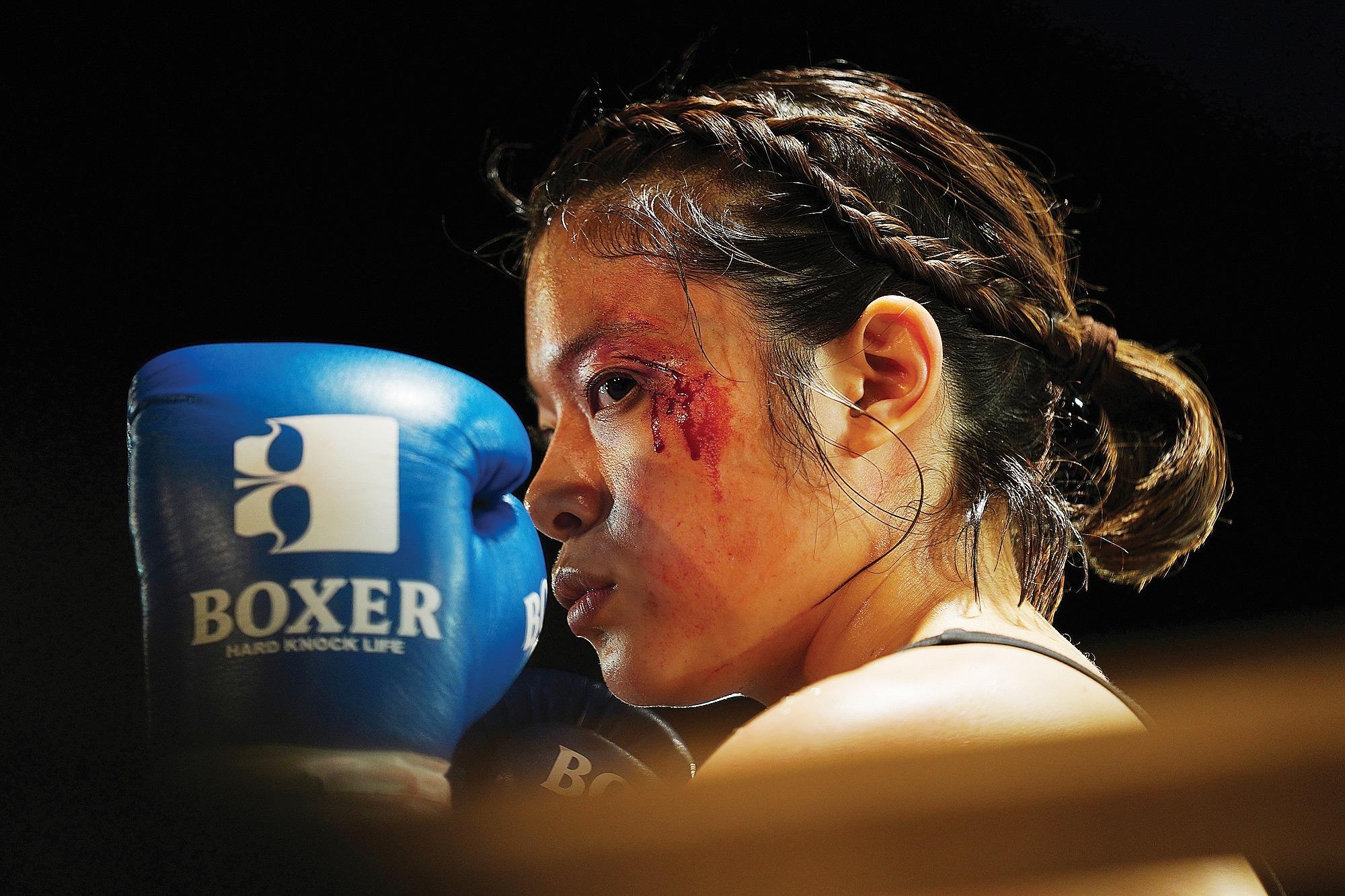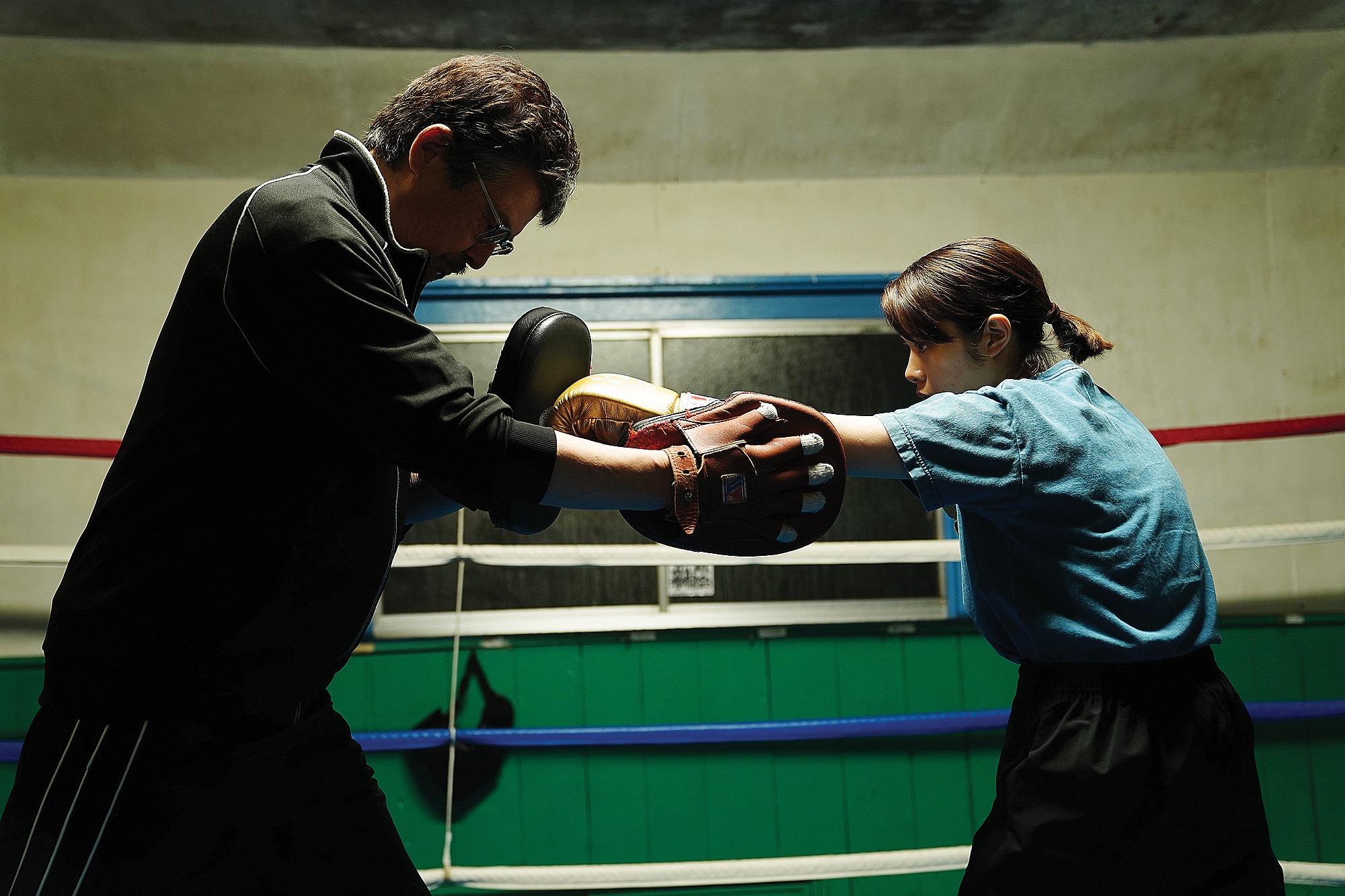 Small, Slow but Steady, directed by Sho Miyake; written by Sho Miyake and Masaaki Sakai. Starring Yukino Kishii and Tomokazu Miura. Japan, 100 minutes, I. Opened July 20. (PHOTO PROVIDED TO CHINA DAILY)
Small, Slow but Steady, directed by Sho Miyake; written by Sho Miyake and Masaaki Sakai. Starring Yukino Kishii and Tomokazu Miura. Japan, 100 minutes, I. Opened July 20. (PHOTO PROVIDED TO CHINA DAILY)
If Karyn Kusama’s Girlfight (2000), Clint Eastwood’s Million Dollar Baby (2004) and Sian Heder’s CODA (2021) were somehow spliced together like so much movie DNA, the resulting film might look something like Sho Miyake’s Small, Slow but Steady, a quasi-pandemic boxing drama that’s more subversive than expected and more emotionally nuanced than it has a right to be. Loosely based on deaf boxer Keiko Ogasawara’s autobiography, this is a marvel of a film — first for its ability to make COVID-19 a valid story thread and thematic indicator, and second for undermining standard sports drama beats, but still being a sports drama. That’s a hard balance to maintain, but journeyman director Sho Miyake has no trouble wrangling his material. Small, Slow but Steady is a quietly affecting plea for community — but not in the cloying, cynical sense of “being kind” that’s been harped on of late. It’s also genuine, incisive, legitimately empowering and gorgeously rendered visual storytelling about a woman finding her place in a volatile world.
It’s late in 2020 and Keiko (Yukino Kishii, an under-the-radar veteran actor in a career-best performance) is an amateur boxer who’s just turned pro. She’s won her first bout but she’s not coasting yet. Working in housekeeping at a luxury hotel, she’s one of the staff’s best but is separated from her coworkers due to her hearing impairment — a plight made worse by COVID-19 mask mandates: She can’t see anyone’s lips when they talk. Her brother (Himi Sato) and mother (Hiroko Nakajima) both wonder about the wisdom of a career as a pugilist; the health of her coach and mentor, The Chairman (Tomokazu Miura), is failing; and the pandemic threatens to close down her gym. It all gives Keiko just enough time to wonder if she really needs to keep boxing.
 Small, Slow but Steady, directed by Sho Miyake; written by Sho Miyake and Masaaki Sakai. Starring Yukino Kishii and Tomokazu Miura. Japan, 100 minutes, I. Opened July 20. (PHOTO PROVIDED TO CHINA DAILY)
Small, Slow but Steady, directed by Sho Miyake; written by Sho Miyake and Masaaki Sakai. Starring Yukino Kishii and Tomokazu Miura. Japan, 100 minutes, I. Opened July 20. (PHOTO PROVIDED TO CHINA DAILY)
So far, so standard boxing movie. But it’s here that Miyake and co-writer Masaaki Sakai take a turn for the unconventional. Small, Slow but Steady unfolds exactly like its title suggests, layer by layer, slowly showing us who Keiko is, detailing her daily struggles, and sharing moments of joy and connection with friends. Keiko isn’t pitiable. She’s insular, sometimes prickly, and complex, and Miyake and Kishii tell us why.
Boxing has long been a metaphor for the personal fights we choose to pick and the need for perseverance when faced with potentially catastrophic challenges. Sylvester Stallone’s 1976 classic Rocky was a character study about a guy desperate to prove he’s more than just a thuggish loan collector. We all know that despite the loss in the final bout, Rocky wins something intangible: pride. As Small, Slow but Steady sets up Keiko’s life and fight career early on, it’s easy to jump to conclusions: to assume we know where it’s going to end. Miyake’s film is cut from the same gritty, dramatic cloth as Rocky, and he makes the film about much more than left jabs. In fact, they don’t matter.
It helps that Miyake gets tremendous support from Kishii, who injects Keiko with a physical presence and emotional intelligence that lift the film well above sports drama cliche. She completely inhabits the character, vanishing into the background or popping out as her mindset and confidence levels ebb and flow, and we can almost feel the ache of a particularly rough fight. The space Miyake has put her in is vivid in its silence, complemented by an urban, gray-brown sheen and a music-free soundtrack, occasional intertitles, and cinematographer Yuta Tsukinaga giving Tokyo’s empty streets a broken-down, industrial vibe that adds a layer of oppression and isolation, thanks to the coronavirus. Small, Slow but Steady is the smart, astute antidote to the insipid, frequently inappropriate romance Japanese cinema prefers these days. Here’s hoping this is the beginning of a new trend.


